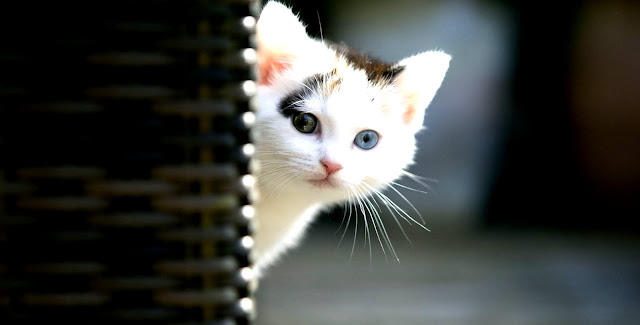Why Do People Love Their Pets?
The evidence that people form strong bonds with their pets
is reviewed briefly before defining the characteristics of these relationships,
which include pets being a source of safety in addition to the goals of
caregiving. In evolutionary terms, pet ownership poses a problem, because
linking and dedicating resources to other species is, in theory, reducing
fitness. Three attempts to calculate pet breeding, as well as problems with
these opinions, are discussed. Pet breeding is placed in the context of other
forms of inter-species association. From this, Darwini's interpretation
suggests an alternative: pets are seen as manipulating human responses that have
evolved to facilitate human relationships, primarily (but not exclusively)
parent-child relationships. The precise mechanisms that enable pets to obtain
care from humans have been put in place. It includes features that provide
primary gravity, such as neurological characteristics, and those that enable
the human owner to obtain continuous satisfaction from interacting with the
pet, such as attributing mental processes to human-like creatures. These
mechanisms can, in some circumstances, cause pet owners to be more satisfied
with their pet relationship than with humans, because they offer a kind of
unconditional relationship that is often absent from that of other humans.
The Science Behind Our Love for Pets
Do you hold the dog's head in your hands, and stare into its
eyes while talking to it? Does purring your cat in your lap make your heart
swell? Millions of pet parents love their fur children, and now science can
explain the chemistry behind your pet love and their love for you.
Devoted to Dogs

A Japanese study reported by Science found that dog owners
experienced a staggering 300 percent increase in oxytocin levels after spending
half an hour with their dogs, including staring at their eyes. Scientists have
found that this closed view is the key to the solution. In fact, scientists
have not seen an increase in oxytocin in dogs and owners who have spent little
time looking into each other's eyes.
 Oxytocin is a hormone that plays a strong role in bonding,
trust and altruism between a mother and her baby. It's actually so powerful
that it's often called the "love hormone." Like the Japanese study
found with dogs, oxytocin is released at its highest level between a mother and
a baby when they look into their eyes.
Oxytocin is a hormone that plays a strong role in bonding,
trust and altruism between a mother and her baby. It's actually so powerful
that it's often called the "love hormone." Like the Japanese study
found with dogs, oxytocin is released at its highest level between a mother and
a baby when they look into their eyes.
While it can be proven that you love pets, have researchers
proven that dogs love us?
Yes, according to the Japanese study and a second study by
neuroscientist Paul Zak. The Telegraph newspaper reported that Zach conducted a
study of ten dogs and discovered that oxytocin levels increased by 57.2 percent
when the dogs spent ten minutes playing with their owners. The Japanese study
found that this number increased more. In that study, dogs showed a 130 percent
increase in the "love hormone" after thirty minutes with their
owners, including time staring at each other's eyes.
Crazy for Cats
What about cats? Cats are often described as facing and may
not require the same affection or care that your dog requires. But can you love
your cat? Can your cat love you?
Studies on whether humans can actually feel love for their
cat are rare, but Zach has tackled the question of whether a cat can feel love
for you by taking a test similar to the one he did with dogs. After ten minutes
of playing with its owners, the ten cats in the Zach study showed a 12 percent
increase in oxytocin levels. While this change is much less than the Zac
increase seen in dogs by 57.2 percent, it indicates that the effect of human
contact is similar. The result was unexpected. Zach told the newspaper,
"At least some times, cats seem to be bonding with their owners."
In a better sign of love, a study published by Behavioral
Processes shows that cats like to interact with humans more than they enjoy
eating. Preference for petting on food? Now this says something.
Therefore, this feeling of sadness when you have to leave
your pet at home while going to work, and this feeling of excitement your pet
gets when you return home in the end is signs of true love. Remember that the
next time your pet accidentally enters the house or scratches your furniture.







0 Comments